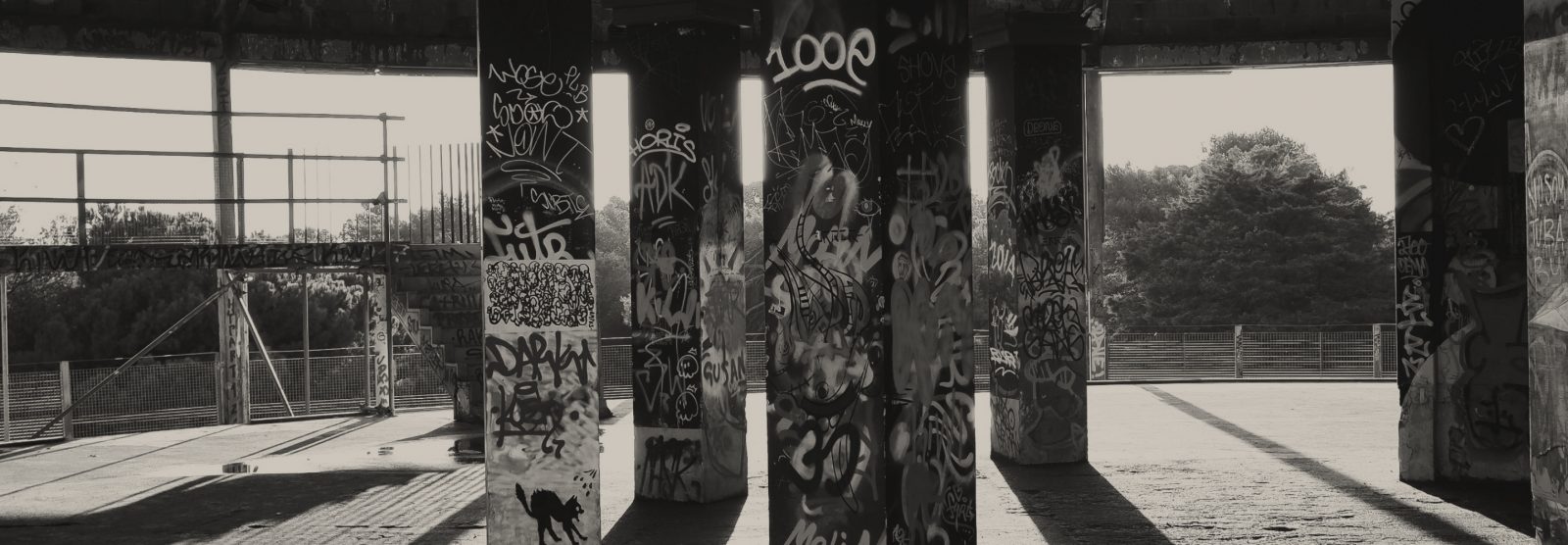Feminisms Against the Carceral State
Seventies-era anti-carceral feminism opposed “tough on crime” policymaking and played an important role in the making of today’s prison abolition movement.

TOPICS
49 posts in ‘Foundations’
Seventies-era anti-carceral feminism opposed “tough on crime” policymaking and played an important role in the making of today’s prison abolition movement.
Jails have been foundational to immigration enforcement for over a century—and have always operated with a staggering absence of oversight and public awareness.
The United States has long treated street and corporate wrongdoing differently. Looking beyond this dichotomy can help us end mass incarceration.
A recent anthology offers an accessible political education in the long history of seeking to abolish U.S. prisons.
The deification of whiteness and property has long legitimized the containment of Black, Indigenous, and other racialized peoples.
The push by Atlanta and other cities to build large police training facilities follows on a long history of armories as both symbols and manifestations of the state’s power.
Racialized and violent, modern U.S. warmaking is inextricably linked with our history of mass incarceration.
Recovering a vision of queer solidarity with incarcerated people may just be what people disaffected by the gay rights movement need today.
Reacquainting ourselves with practices that made prisons more permeable can be a step toward ending mass incarceration.
How might we reimagine our rights and liberties in the absence of incarceration?
How white, middle-class youth in the suburbs experienced the war on drugs is a largely untold chapter in the arc of mass incarceration.
A new book centers prisons in the history of U.S. empire, reminding us of the need for international solidarity in the fight for freedom.
Stories of Black flight from enslavement continue to offer lessons for radically rethinking public safety beyond policing.
Attica represents far more than a historic rebellion about prison reform. Its revolutionary abolitionist vision endures today.
How the peaceful takeover of Walpole prison in 1973 holds lessons for abolitionists today.
Atlanta’s Cop City is another chapter in the long history of U.S.-based colonialism. The second installment in a two-part series.
Carceral settings imprison an untold number of experts—outsiders on the inside who have much to teach us about mass incarceration.
For the past decade, people incarcerated in Alabama have led successful national worker strikes. Could a new prisoners’ rights movement be underway?
The U.S. history of coerced prison work is older—and more northern—than its popular origin story tends to acknowledge.
In the history of a shuttered lockup for queer women in New York City, a reminder that incarceration has always been a form of social control.
Abolitionist Ruchell Cinqué Magee is the country’s longest-held political prisoner.
How Martin Sostre’s ‘single act of resistance’ stood for a broader struggle for bodily autonomy and collective liberation.
When the state of Virginia starved them, the author and his incarcerated comrades banded together to gain recognition of their right as citizens to access the courts.
Du Bois’s ‘Black Reconstruction’ is widely embraced by decarceral activists, but it celebrates state violence in a way few would now accept.
How radical lawyers played a key role standing up for survivors of the Attica uprising.
The experiences of Michael and Zoharah Simmons show that the fight against the carceral state is embedded in a larger project of building a just world.
Mexicans and Mexican Americans have long been targets of legal and extralegal violence by the police. Learning this history is a step toward ending abuses that persist to this day.
Understanding the past of the Cook County Jail is understanding its present.
The movement to end police violence has a rich visual history. In Brooklyn, a collective of volunteers is doing its part to preserve it.
Absent a sustained politics of solidarity, culture wars will continue to erode civil rights while criminalizing, surveilling, and punishing those who claim them